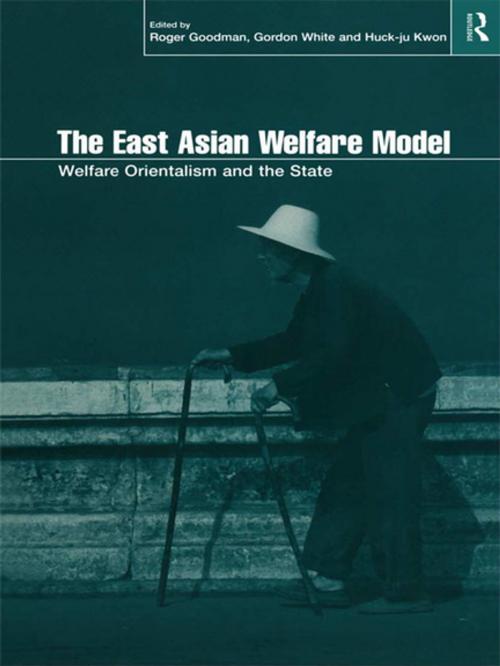The East Asian Welfare Model
Welfare Orientalism and the State
Nonfiction, Social & Cultural Studies, Social Science, Cultural Studies, Ethnic Studies| Author: | ISBN: | 9781134692897 | |
| Publisher: | Taylor and Francis | Publication: | December 5, 2006 |
| Imprint: | Routledge | Language: | English |
| Author: | |
| ISBN: | 9781134692897 |
| Publisher: | Taylor and Francis |
| Publication: | December 5, 2006 |
| Imprint: | Routledge |
| Language: | English |
For many politicians and observers in the West, East Asia has provided a broad range of positive images of the state's intervention in society. Neoliberals grew excited by popular welfare systems that cost little in expenditure and bureaucracy. Social-democrats thought they had found a model for social cohesion and equality. In fact the reality in East Asia is rather different from these stereotypes.
In this book six specialists of six different societies in East Asia (Japan, South Korea, Taiwan, China, Singapore and Hong Kong) examine the role of the state in their welfare systems. There are detailed case studies on pensions, health insurance, housing and personal social services. They provide an up-to-date detailed account of how these systems have developed as well as an examination of the question of whether these welfare regimes are the natural outgrowth of cultural traditions or the result of economic and political conditions.
This broad-ranging and detailed study will be welcomed by both students and policy makers as the first proper academic study in English to have such a wide coverage of this topic. Its clarity and authority should come as a welcome alternative to the more common misconceptions about Asian society.
For many politicians and observers in the West, East Asia has provided a broad range of positive images of the state's intervention in society. Neoliberals grew excited by popular welfare systems that cost little in expenditure and bureaucracy. Social-democrats thought they had found a model for social cohesion and equality. In fact the reality in East Asia is rather different from these stereotypes.
In this book six specialists of six different societies in East Asia (Japan, South Korea, Taiwan, China, Singapore and Hong Kong) examine the role of the state in their welfare systems. There are detailed case studies on pensions, health insurance, housing and personal social services. They provide an up-to-date detailed account of how these systems have developed as well as an examination of the question of whether these welfare regimes are the natural outgrowth of cultural traditions or the result of economic and political conditions.
This broad-ranging and detailed study will be welcomed by both students and policy makers as the first proper academic study in English to have such a wide coverage of this topic. Its clarity and authority should come as a welcome alternative to the more common misconceptions about Asian society.















